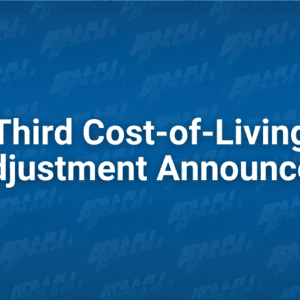January 11, 2021
COVID-19 Vaccines at the VA
(This article first appeared in the January/February 2021 issue of the American Postal Worker magazine)
The Department of Veterans Affairs (VA) is working closely with the Centers for Disease Control and Prevention (CDC) and other federal partners to provide COVID-19 vaccines to veterans and VA health care personnel. There have been several questions concerning the vaccine and information continues to change quickly. Veterans are being encouraged to visit the Veterans Affairs webpage. The VA updates their page as soon as they have new information to offer.
The Food and Drug Administration (FDA) has authorized the first two COVID-19 vaccines. The VA worked with the CDC and other federal partners to develop a phased plan for who will get a vaccine first. Their goal is to do the most overall good for the maximum amount of people with the limited amount of currently available doses during this time.
Under this plan the VA will first offer vaccines to these 2 groups:
- Veterans living in our long-term care facilities and
- VA health care personnel. Vaccinating the high-risk VA health care personnel helps them continue providing care for veterans.
The VA based this plan on these criteria from CDC guidelines:
- Risk of becoming infected with the virus,
- Risk of severe illness and death from COVID-19,
- Risk of spreading the virus to others,
- Risk of harm to society if essential workers including health care personnel are unable to work.
After the first two groups the VA will begin to offer vaccines to more veterans who are at high risk of severe illness from COVID-19. Your VA health care team will contact you if you’re eligible to get a vaccine during this time.
The VA is following CDC guidelines for determining who is at high risk of severe illness or death from COVID-19. Factors that may influence the risk of severe illness include the following:
- Age – The risk of severe illness or death from COVID-19 increases with age.
- Existing health problems – People with certain health problems (like diabetes heart disease or obesity) have a higher risk of severe illness or death from COVID-19.
- Other factors that raise a person’s risk of severe illness or death from COVID-19 such as living in a nursing home or other group living facility. As the supply of vaccines increase the VA will work with their care teams to let veterans know their options.
The first authorized COVID-19 vaccines require special storage and handling. Because of this the VA will start by offering vaccines through certain VA medical centers. When more vaccines are available the VA will determine if they can provide vaccines through their community provider network.
When more vaccines become available the VA plans to offer a free COVID-19 vaccine to all veterans receiving VA health care who want one. If you decide to get the vaccine your team will help you schedule your appointments. If you are not currently receiving health care through the VA you can apply now.
As for the safety of the vaccine the U.S. vaccine safety system ensures that all vaccines are as safe as possible. Safety is a top priority while federal partners work to make a COVID-19 vaccine available.
The VA will closely monitor veterans who get a COVID- 19 vaccine for reactions side effects or adverse events. An adverse event is an injury or harm that happens to someone after they receive a vaccine which may or may not have been caused by the vaccine. This information will be reported in the Veterans Affairs vaccine monitoring and tracking system which is the same system they use to monitor reactions to all vaccines including those for the flu and shingles.
Sign up for News



